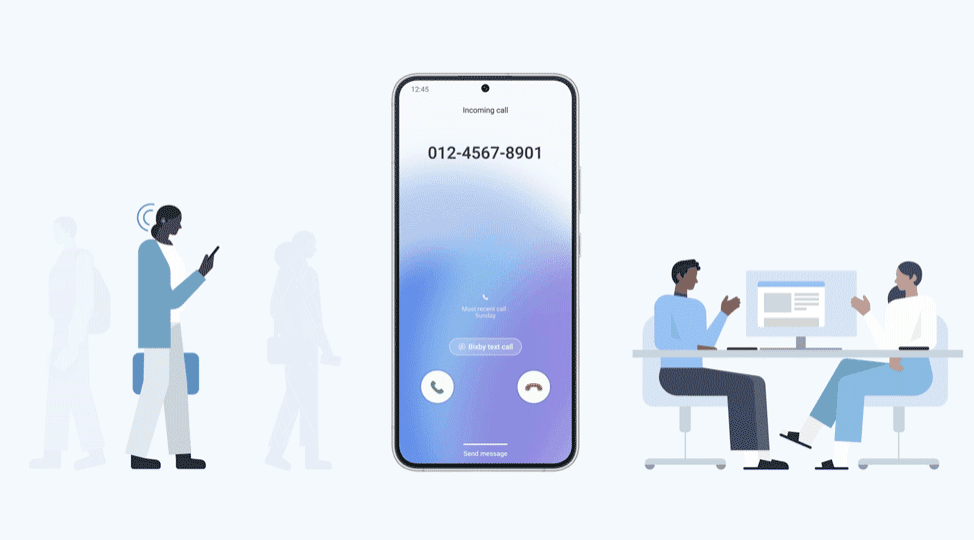Samsung has recently debuted a new Bixby feature that creates an AI-generated copy of a user’s voice to answer calls. This feature is designed to help users who are unable to take calls or are busy with other tasks by providing an AI-generated voice response that sounds like the user.
However, the feature is only available in Korean for Galaxy S23 series devices right now.
The feature, called “Customized Voice,” uses machine learning algorithms to analyze the user’s voice patterns, tone, and other characteristics to create a digital voice that sounds like the user. This AI-generated voice can be used to answer calls, play voicemail messages, or respond to messages without the user having to take any action.
Also, see; Kempus aspires to be the ultimate app for sharing college hacks
The function enables you to utilize your artificial intelligence-generated voice to answer calls on your behalf when you are unable to do so. For instance, you might utilize the new function to type up a sentence that will be read out to the caller in your voice if you can’t answer a phone call. In the future, Samsung says it intends to integrate the capability with its other features in addition to voice calls.
Moreover, Samsung said that English calls are now supported via the Bixby Text Call feature, which converts voice calls into written text. Users can answer calls by composing a message that will be read aloud to the caller by Bixby, a function that was first introduced last year in Korean. The caller’s words can likewise be transcribed through Text Call. The feature is available On the Z Fold 4 and Z Flip 4, as well as Samsung S23 devices.
Also, according to the firm, customers will soon be able to change Bixby’s wake-up phrase to whatever they like. Depending on the sort of workout that is currently playing on Samsung Health, the voice assistant can now play music as well.
“Now, Bixby can better understand intent and process follow-up requests by understanding context and associating words previously used in interactions,” the company wrote in a blog post. “For example, Bixby users can first launch a workout on Samsung Health and then ask Bixby to play music that best suits that exercise by saying “Play music for this workout.”
Also, according to Samsung, Bixby can now perform more tasks offline, like timing events, capturing screenshots, and turning on the flashlight.
While this feature may be helpful for some users, it also raises concerns about privacy and security. Some people may not want their voices to be replicated in this way, and there is always the risk that the technology could be used maliciously.
It is important for companies like Samsung to be transparent about how they are using AI-generated voice technology and to provide users with the option to opt-out if they do not want their voice to be used in this way. As with any new technology, it is important to consider the potential benefits and risks before deciding to use it.



















